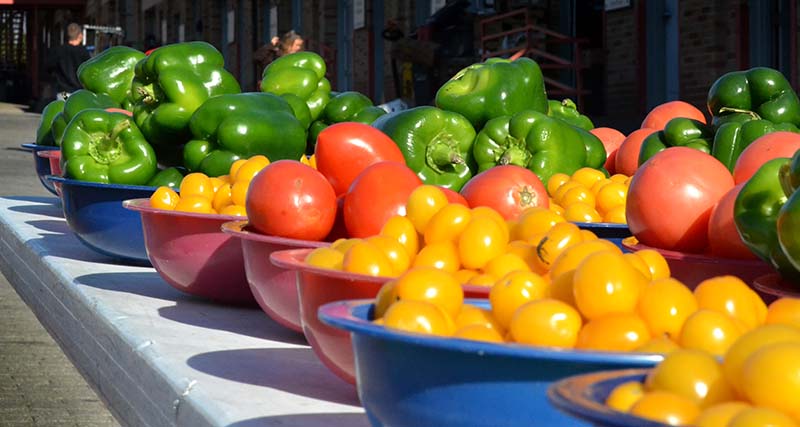story by Madeline Best, photos by Jordan Allen
Vegans, vegetarians…what’s the difference? Actually, there is a fine line between veganism and vegetarianism, and sometimes, the topic can become slightly tricky to those unfamiliar with the differences.
Vegetarianism is defined as refraining from eating meat products such as red meat, poultry and seafood. Therefore, a vegetarian diet focuses heavily on fruits and vegetables. Vegetarianism is a lifestyle which can be adopted for a variety of reasons from health to religious or personal beliefs. One of the most popular reasons people turn to vegetarianism is personal views on animal cruelty. Some people, like junior Kiley O’Toole, feel badly about eating any type of meat.
“It messed with my head that this thing on my plate that I’m about to stick in my mouth was alive,” O’Toole said.
Another reason many turn to vegetarianism is for health. According to health and fitness teacher Stacie O’Rear, by cutting out unhealthy proteins like red meat, such as beef, and replacing it with other foods like spinach and nuts, people can cut down on unhealthy fats and maintain a healthier diet. This may seem like an easy fix, but by eliminating a main source of protein, a body can become protein deficient. Protein deficiency can lead to the weakening of the body’s immune system and a slower healing process for injuries. However, many vegetarians have found ways to maintain a healthy protein intake.
“I eat peanut butter everyday,” O’Toole said. “I try to keep up with my protein [because] my doctor always warns me about that.”
Adding extra protein, like peanut butter or protein powder, can help maintain balance in a vegetarian diet.
[nggallery id=390]
Similar to vegetarianism, veganism is a diet in which all meat is ruled out. However, a vegan diet is considered stricter because it also dismisses animal products such as dairy, eggs and honey. Junior Ciara Collins decided to make the switch from vegetarianism to veganism last February.
“I decided to become a vegan for my health,” Collins said. “Some aspects of it are better for you and for the animals because they are treated badly.”
Since switching to veganism, Collins feels healthier due to the changes in her diet.
“I have more energy and I feel like I am getting more vitamins because I’m eating more fruits and vegetables than I did before,” Collins said.
Similarly, veganism can also lead to protein deficiency and loss of calcium. In order to stay healthy, O’Toole and O’Rear recommend taking supplements in order to maintain a healthy balance of iron.
According to Collins, one of the hardest thing about veganism is cutting out all foods which include dairy products such as cake, ice cream and cookies.
“It can be hard, especially going to this school where everyone is always eating dessert and stuff that I can’t usually eat,” Collins said.
To help vegans avoid these temptations, hundreds of vegan cookbooks have been made which include recipes for dishes ranging from pizza to pancakes, which are Collins’s favorite.
If someone is considering adopting either of these diets, there are a few things to take into consideration. First of all, it is important to do research to conclude if a diet like this is right for a specific individual. Take O’Rear and O’Toole’s advice and talk to your parents and doctors before switching to check your health will not be a conflict. Also, research which vitamins and supplements would be best for you to take as a vegan or vegetarian. It is important to remember, as Collins suggests, the sacrifices one is making when it comes to the foods he or she will have to give up. If these ideas sound appealing consider beginning the journey to becoming a vegan or vegetarian.









